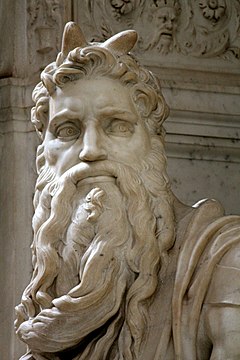[Greek] ἐπιστρέφω (epistrephō), [Latin] revertere, [Latin] convertere, [Latin] redire, [French] tourner, [French] se changer, [French] renverser, [French] retourner: to revert, to turn, to turn around, to return, to convert, to turn about; 44 scriptural references

The family remains in their home waiting out the storm. At Vatican II, Pope John XXIII naively thought it was a good idea to bring some “fresh air” into the Church. As a result, this “fresh air” has turned into a greater storm: a more politicized and worldly Church.
Background information:
Le Toit (Fatherly Roof): (painting by Louis Janmot [1854]:
- The family is at home during a thunderstorm, shown by the flashes of lightning at the window.
- Grandmother reads a psalm to calm the tense situation. The mother and another young woman sit and sew.
- The father (a self-portrait of Louis Janmot) looks on with concern. An older woman sits in the shadows near the window.
- (In some ways, each of us can perhaps identify with this family as we also sit in isolation in our homes during these crises.
- Like the father, many parents are concerned about providing for their families’ spiritual growth (welfare).
Greek Hellenism: This term means to turn back, to turn about, to turn round, to put an enemy to flight, to put about, to recur, to pay attention to, to bring into action, to convert, to correct, to return, to go back and forth, to turn against, to wheel about, and to repent.
Herodotus’ Histories 2.103.2: “From there he turned around and went back home.”
Herodotus’ Histories: “Nor be still, but turn your back and withdraw from the foe.”
Xenophon’s Hellenica 6.4.9: “It was already evident that there would be a battle. Some baggage carriers as such did not wish to fight (turn back) and had withdrawn.”
Sophocles’ Antigone 1111: “But since my judgment has taken this turn, I will be there to set her free.”
Xenophon’s On Hunting 10.15: “On seeing this, the bear will leave the man under it and turn savagely and furiously on its tormentor.”
Old Testament: This term denotes movements, turnings, and changes of place. This term is quite commonly defined by one’s relationship with God. This meaning includes to turn from, to turn away, to convert, to repay, to turn to someone, and to turn to evil.
New Testament: This term means to turn around (physically), to return, to change one’s beliefs and ways (conversion), to cause to change, to go astray, and to repeat. For purposes of brevity, physical turning will be excluded.
Scripture:
Mt.10:13: “If the house is worthy, let your peace come upon it; if not, let your peace return to you.” (This means that your peace shall not come upon it. You are not bestowing a gift to them. If people were willing to receive this, they would receive a benefit or blessing.)
Mt.13:15: “Gross is the heart of this people, they will hardly hear with their ears, they have closed their eyes, lest they see with their eyes and hear with their ears and understand with their heart and be converted.” (Jesus speaks to the people because the mysteries of the kingdom of heaven has not been granted to them. They look but do not see and hear but do not listen or understand. They have struggles in being converted.)
Lk.22:32: “But I [Jesus] have prayed that your own faith may not fail; and once you have turned back, you must strengthen your brothers.” (Jesus prays that Peter’s faith be strengthened, alluding to Peter’s role in leading his brothers and disciples. Jesus states that Satan seeks to sift (place trials and temptations before them) and to cause them to lose their faith.)
Acts 11:21: “The hand of the Lord was with them and a great number who believed turned to the Lord.” (Gentiles and those who fled because of the persecution of Stephen resided in Antioch. Some Jewish Christians were uncomfortable with the mixed community. The disconcerted Jewish community sent Barnabas to investigate. Barnabas was favorably impressed by what he observed in Antioch.)
Acts 14:15: “Men, why are you doing this? We are of the same nature as of you, human beings. We proclaim to you good news that you should turn from these idols to the living God.” (Upon healing a crippled man in Lystra, many saw Paul and Barnabas as gods. Paul pleads that they turn away from idols to the living God. Idols are vanities, falsities, foolishness, folly, sin, and wickedness.)
Acts 26:18: “I shall deliver you from this people and from the Gentiles, to open their eyes that may turn from darkness to light and from the power of Satan to God.”
- Paul alludes to his own spiritual blindness as a rabid Pharasaic persecutor of Christians. Jesus opens Paul’s eyes and appoints him as an apostle for the Gentiles.
- Darkness refers to ignorance, paganism, disobedience, and sin.
- Lightness refers to the purity of the gospel.
- Satan is the ruler of the world. The pagan world and the great mass of the people of this world are subject to the kingdom of Satan.
Gal.4:8-9: “You have become slaves to things that by nature are gods, but now that you have come to know God, how can you turn back again to the weak and destitute elemental powers?” (Paul makes reference to many who were enslaved to the elemental powers of the world. God sent His Son to ransom these people to be adopted sons (and daughters) of God. Paul asks why do you throw this freedom away in turning away from God.)
Jas.5:19-20: “My brothers, if anyone among you should stray from the truth and someone bring him back, he should know that whoever brings back a sinner from the error his way will save his soul from death and will cover a multitude of sins.” (When a Christian is instrumental in the conversion of a sinner, the result is forgiveness of sins and a reinstatement of the sinner to the life of grace.)
[Greek] tropaion, [Latin] tropaeum ==>trophy: This term is derived from the Greek and Roman practice of setting up monuments to commemorate a victory (turning point) over a foe on the battle field. The significance of the monument is a permanent reminder of victory over the defeated enemies.
In spite of the difficulties and obstacles in the world we are now seeing some minor victories in this battle.
- More people are becoming fed up with a politicized and worldly Church. They want to see a divine Church in the “business” of saving souls rather than an NGO in the business of social justice.
- More people are seeking reverence and piety.
- More young priests and seminarians are becoming traditional and conservative-minded.
- More younger people are attracted to Tradition and the TLM. Young people are looking for something much deeper and substantial in their faith.
- More Protestants are converting to Catholicism. Protestants are also looking for something much deeper.
- More people are seeing the harmful consequences of Vatican II (from “bringing fresh air into the Church”).
- More people are seeking a divine Church in the world rather than a worldly synodal Church moving with the world.
- The Holy Spirit is now already leading a true reform of this worldly Church.
Conclusion:
Conversion, convert, reverse. trophy, return, reversal, redo, change, changing
Greek Hellenism: The more nuanced examples include chasing an enemy, paying attention, putting about (a boat), repenting, correcting, and going back and forwards.
Old Testament: Turning also plays an important role in having faith (turning to God) and in falling away (turning away from God). Conversion becomes an important recurring theme. Interestingly, there are situations where God permits some to have a hardened heart (Pharaoh).
New Testament: The earliest mention of the term Christian is found in Antioch.
Update: Pope Francis and his fellow Modernists (Synodalists) have been turning Jesus’ divine Church into a worldly synodal Church made in the image of man.
It is very unfortunate that the USCCB have turned their priorities to immigration and implicit illegal immigration efforts. 90% for immigration and 1% for pro-life and abortion causes.
Cardinal McElroy, a close advisor to Pope Francis, refuses to meet with President Trump but has met with President Biden. This is a perfect illustration of a cardinal engaging in politics.
The US government is longer turning off their financial support to the USCCB, Catholic Charities, Catholic Resource Services, and other NGO and charitable organizations. The American people will also turn away their peace, gifts and financial support to these groups. How the tide has turned for these groups!
The USCCB has turned too far (“jumping the shark”) in suing the US government. The USCCB are showing themselves as political groups focused on money.
Many clergy in the clergy have lost sight of Jesus’ Church’s primary mission is to save souls. Instead, the Church has become more worldly, more politicized, and more focused on social justice issues. These clergy often remain silent and cowardly in speaking out or in defending Church teachings.
Many clergy and laity often pay lip service to Church teachings against homosexuality and sin. The LGBTQ community continue to be “welcomed” and tolerated for their behavior and lifestyle.
Many faithful clergy (Bishop Strickland, Archbishop Vigano, Cardinal Mueller, Cardinal Sarah) continue to call on their fellow bishops to stand up for Church teachings. Unfortunately, the responses have been weak and tepid, for fear of being cancelled, deposed, ostracized, and laicized.
Many of us often forget or do not realize that the world is under the domain of Satan. Satan continues to put up obstacles and temptations to lead both clergy and laity astray from the Church. Satan seeks for one to lose faith and to undermine the Church.
Many of us have been drawn, captivated, and held captive (like a slave) by sin through various idols: wealth, fame, notoriety, stuff, technology, vices, and sin. Satan will use whatever it takes to draw people away from God and the Church.
For many people, SYNODALITY IS BECOMING LIKE AN IDOL, detracting from Jesus.
Pope Francis’ papacy has been filled with many examples of spiritual ignorance, spiritual blindness, and questionable (heretical) statements and documents.
Many are now pray for both Pope Francis’ health and SPIRITURAL CONVERSION. Are you surprised? Pope Francis, with such responsibility and authority, is all the more accountable before God.
We are now seeing small victories along the way. The Holy Spirit is already beginning to inspire a new true reform of the Church against the problems (evils) of Modernism and Synodality.
Ever since Vatican II, we have seen the Church turn into a worldly and political institution with questionable financial transactions.
We need to reassess and course correct what Vatican II caused and turn the Church back to a divine institution in the “business” of saving souls”.
“Man can build a world without God. But this world will end by turning against Him.” St. John Paul II
“This is prayer, that you turn your mind and heart to God.” St. Teresa
“We do not want a Church that WILL MOVE WITH THE WORLD. We want a Church that WILL MOVE THE WORLD.” GK Chesterton (he nailed it on Synodality!)
Next post: Ash Wednesday













































































































